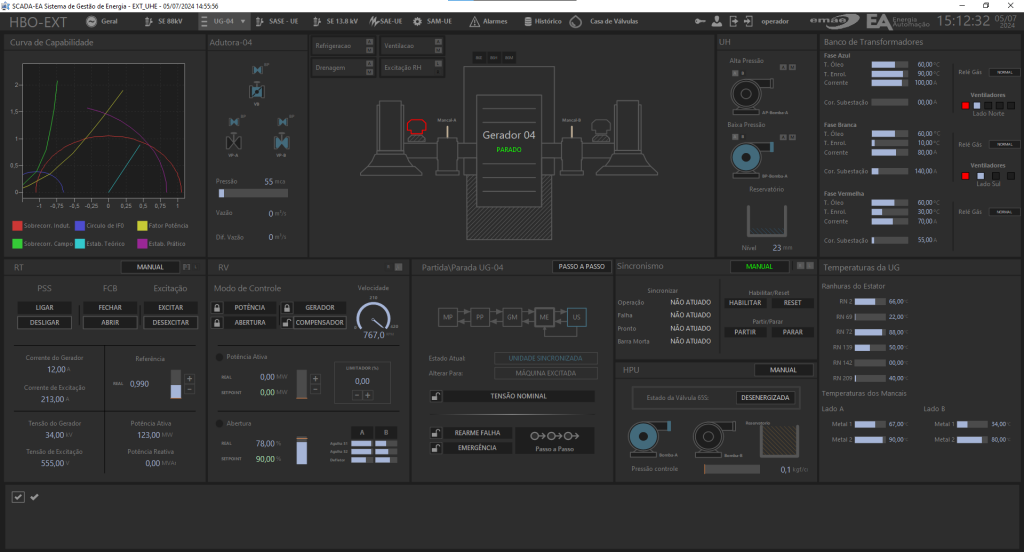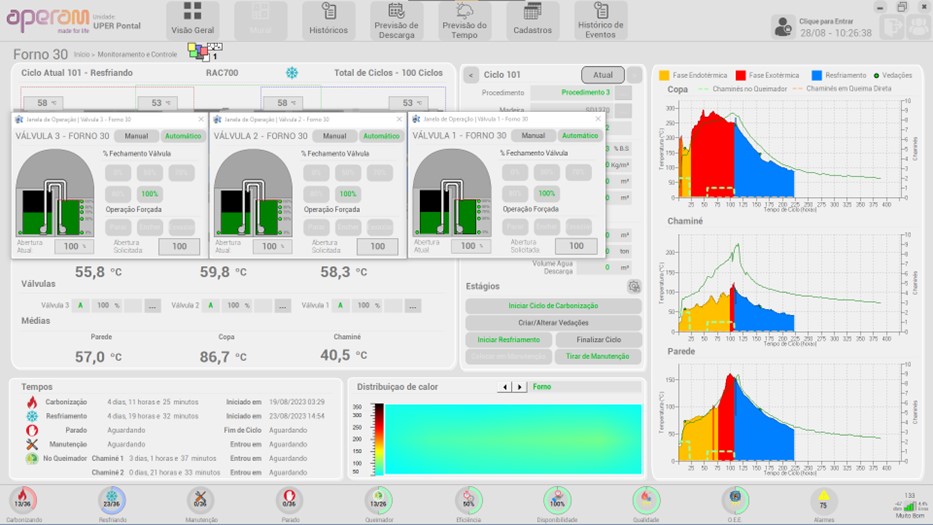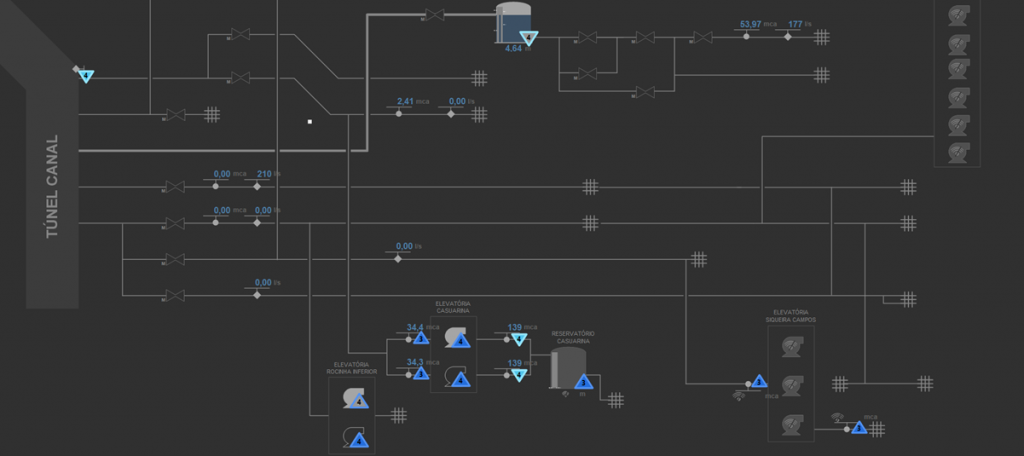Elipse Software is the pioneering developer of SCADA systems in Brazil. Since 1992, the company has worked exclusively in this sector, adding value to its environment, which include partners, solution providers, and final clients.
SCADA systems are the backbone of the operation, in real time, of the modern world infrastructure. They also work as constant support to maintenance crews, in addition to providing data about the functioning of equipment and the critical infrastructure of new, increasingly deep corporate integrations, working as the basis of digital transformation processes.
A few examples of operations using SCADA systems are:
- Power generation, transmission, and distribution.
- Water and wastewater generation, transmission, and distribution.
- Building infrastructure and utilities automation.
- Railroads, subways, highways, and airport management.
- Gas, oil, and their byproducts exploration, refining, and distribution.
- Food and pharmaceuticals production.
- Steelwork and mining production chains, among others.
SCADA systems work by collecting real-time information from several devices via communication protocols. Then, they allow sending commands or programming via synoptic screens representing the process being supervised or controlled. Each bit of information (called “tag”) can be organized in contexts which include not only its value, but also a timestamp and a quality rating. Additionally, data can be structured as objects, which represent the assets that are being monitored (devices of physical structures). This helps all users, be they operators, managers, administrators, or third parties, to better understand the information on display.

Elipse Power screen: controlling one of the generators at EMAE’s Henry Borden plant
Other features of SCADA systems are:
- Allowing the creation and display of customized graphical user interfaces, which indicate the situation of each process and its components in real time, as needed.
- Notifying users, via alarms and events, of any anomalous situation that takes place.
- Prioritizing actions and commands over data collection.
- Recording short-term history and displaying trend charts.
- Storing configurations or setups, which allow automating lengthy or error-prone actions.
- Creating hourly schedules.

Elipse E3 screen: controlling one of the carbonization kilns at Aperam Bioenergia
Elipse Software is the pioneering developer of SCADA systems in Brazil. Since 1992, the company has worked exclusively in this sector, adding value to its environment, which include partners, solution providers, and final clients.
And what are Elipse Software’s competitive edges?
- Greatly capable, flexible communication: We can execute communication from thousands of devices with one or more servers. Our portfolio features over 490 communication protocols, and we have a specialized team for developing new drivers as needed. This means you won’t need to be stuck with any other hardware vendor, as we partner with you to support and execute any connectivity needs that may arise.
- Specialized data models: With Elipse’s SCADA systems, you can represent the assets or devices being monitored in the shape of customizable objects, which adapt to the amount and the quality of the information they’re standing for. Additionally, we offer systems that specialize in power and water & wastewater areas, with objects and algorithms ready to meet the increasingly specific needs of the clients in these markets.
- Alarms and events management: Fully compliant with ISA 18.2 standard. It allows for any features that relate to indication and management of occurrences.
- High-Performance Human-Machine Interface (HPHMI): Provides advanced visualization and operation features, aiming at the operation’s efficiency and agility according to ISA 101 standard.
- Constant evolution: Elipse’s SCADA systems are always evolving, by adopting the best practices and technologies available to keep your company always up to date, productive, and protected.

Elipse Water screen: controlling equipment and variables on the network served by Águas do Rio, concession in Rio de Janeiro
Importance and Benefits of SCADA Systems:
- Operational Efficiency: SCADA systems allow automating processes, which means fewer manual interventions and increased operational efficiency.
- Real-Time Monitoring: When they are able to view data in real time, companies can spot issues more quickly. The results are fewer interruptions and increased safety.
- Data Analysis: Data storage allows carrying out detailed analyses, thus improving processes optimization and implementing more effective strategies.
- Safety: SCADA systems can improve operational safety by monitoring conditions and spotting anomalies that may indicate failures or risks.
- Informed Decision Making: With access to historic and real-time data, managers are able to make more thoughtful decisions, which can lead to minimized costs and increased productivity.
- Scalability and Flexibility: SCADA systems can be easily expanded and adapted to meet the demands of different sectors and processes, thus making them a versatile solution.
SCADA systems are crucial for modernizing and providing efficiency to operations of many different fields, thus contributing to increasing your company’s safety, sustainability, and competitiveness. In this context, these systems have increasingly been adopted by different companies worldwide, which reflects the market’s eagerness for new technologies that integrate control and monitoring in a more efficient, effective way. Count on us from Elipse Software to meet any needs related to SCADA systems!











































